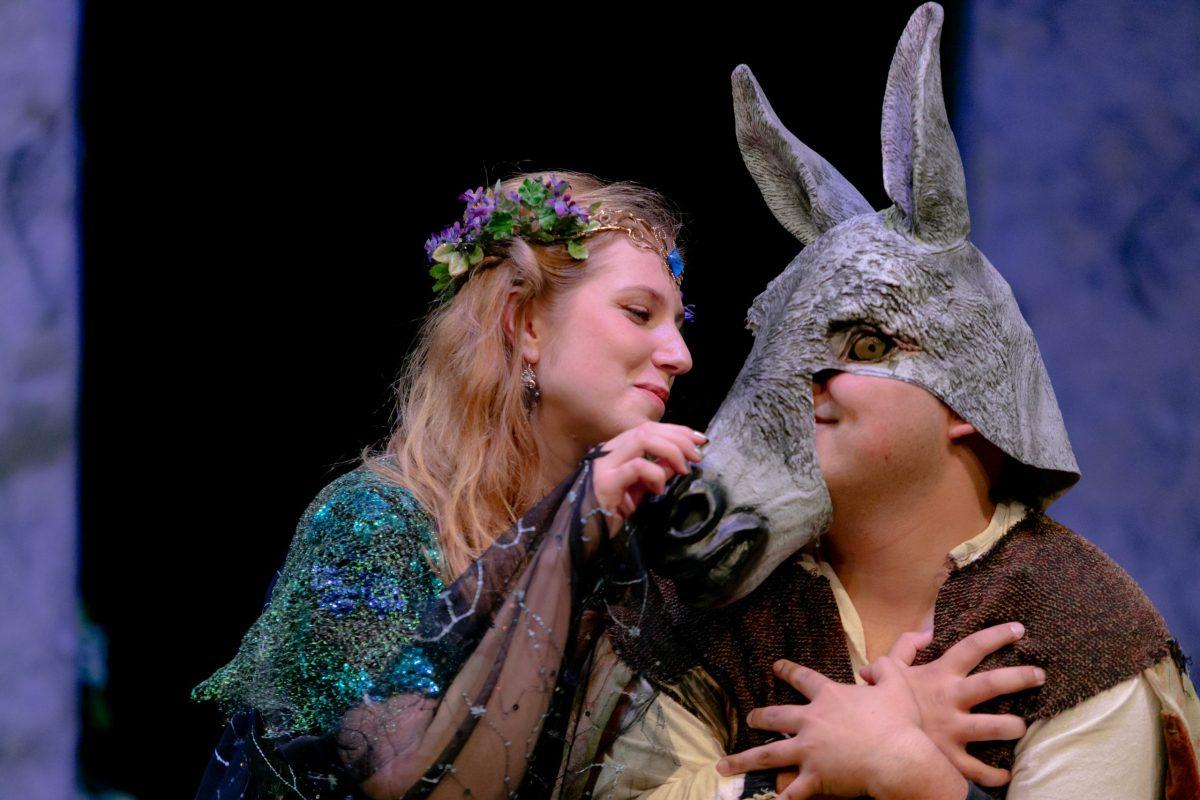This is an opinion article by James L. Brown, a former Principia College student and staff member. The Pilot welcomes letters to the editor and opinion articles from the whole community. Please submit to [email protected].
When I became security director at a small prestigious college in Elsah, Ill., situated in 3,000 acres of forest preserve, I knew I had “arrived.” But, in this heavenly state, I took little notice of the contractual fine print on animal control, a euphemism for “dog catcher,” it turned out.
The college community to which I had sworn allegiance had become a haven for strays and discarded pets. The locals were known to be kind to animals which doubtless contributed to the influx. Yet, it seemed cruel for the love and loyalty pets gave to be cast aside into the world of scavenging that few would survive. To borrow the theme from the slogan “Black Lives Matter,” dog lives also mattered, but if dogs are man’s best friend, the reverse hasn’t always been true. Still, getting involved with dogs wasn’t the heavenly vision I had in mind.
The reality of handling and transporting dogs in an undersized staff car with poor ventilation and no restraints or cages was challenging. Dogs that weren’t car-broken chewed on the seats, left eau de chien (dog scent) and paw prints everywhere, and interfered with the driver motoring at warp speed to get them to anywhere else. Such was the case with a St. Bernard. Shoe-horning in a dog that size with her massive head and slobbering jowls was daunting. Surely, she would climb to the front only for me to struggle to put her in the back. When it came time for the animal shelter run, I was quite ready for a shower, massage, and bed.
Dogs may have been the least of my job responsibilities, but among the most time consuming and high-profile, adding a “Keystone Cop” comedic element that didn’t increase job value. You may ask why, as the director, I didn’t just utilize my staff? Most were retirees who wouldn’t have appreciated the humor; who had time-sensitive duties that couldn’t have accommodated the exercise; and with clawed, chewed, or shredded uniforms, would have resembled the walking dead more than trusted employees. Otherwise, I would gladly have traded places!
En route to the shelter, the dog bulled her way onto my lap, blotting out the heavens, the windshield, and the road. It would have been hard to tell us apart but for the remnant of clothing I still had on, or who was actually driving. The accelerator jammed on faster and speed signs didn’t matter. Neither could the road shoulder be seen well enough to pull over, since stopping in a traffic lane was not an option. I made a rare prayer for the police to take notice!
Suddenly, the massive head turned and its piercing eyes locked onto mine, greatly enhancing the uncertainty of the moment. I struggled to keep control of the steering, trying to avoid looking at her looking at me with either notions of dinner or deep affection. This was followed by a huge lick from a breath that could have killed flies, and I nearly crashed. Great globs of sweat and tears flooded my eyes as the dog’s glowering stare, heft, and shared breath proved much too much intimacy.
I had discovered ways of steering I never thought possible and could only envision how this must have looked from the outside. Imagine a horror movie with a creature awaiting the unsuspecting driver. The moment the driver entered, the camera panned away showing only the violent pitching and shaking of the car; this just about describes my experience. You would only have had a glimpse of the speeding horror. Had you tried to notify the police, the car would have been gone, you would have been uncertain of what you had just seen, and no one would have believed it anyway.
This shelter was a humanitarian lottery and my “winning” was the gruffest-talking, cigar-chomping woman ever to be cast as my savior. It took a change of heart more than the thrill of these rides and sense of duty to get past moments of kumbaya to real compassion for these unfortunates. That was the essence of what I gained from experiences that couldn’t be measured in terms of status or professional accolades.
Perhaps the near-death ride helped me “smell the roses” in service to man’s best friend. An important, humbling lesson in this experience was the “clarity and understanding” bestowed upon me by that dog, which, if she could have talked, would have spared me much anguish.
Mind you, the St. Bernard wasn’t the only dog episode, although some were more notable than others. One dog bit me because, according to its backwoods owner, it was “prejudiced.” I might have argued the point, but the spent shot-gun shells lying about discouraged it. This dog, if not the owner, wasn’t intimidated by me, my badge, or my status as a black deputy sheriff with powers of disposal, so he went after the other leg.
On another case, I had risked my neck to save a pet from a fall off a towering bluff as he played “catch me,” sensing my lack of enthusiasm for the chase and of eminent death. A huge Labrador had raided a cookout, and had eaten so many hot dogs I couldn’t get him into my car until after he had regurgitated everywhere save for the butt of my pants. Standing there in reflection, the gnawing question was if I was taking myself too seriously. Dogs could humble you, seem in control, or save face as I had failed to do on all three counts.
There were other problems. Local pets roamed unleashed or unescorted in violation of county law and college policy, ignored by administrator and faculty owners alike. This posed a more delicate issue when they shared office space with their owners; “guested” in dining facilities; played in the athletic facilities with students; or claimed territory in turf wars with the strays because owners could be more defensive and difficult about their pets than about their own children. When someone’s common variety mutt gained access to a highly prized breed in what should have been an impenetrable enclosure, it nearly resulted in fisticuffs between venerable academics. Housekeeping complained about stains on building carpeting or “leavings” in indiscrete places rarely claimed (or cleaned up) by owners.
A ranking administrator made life particularly difficult over these matters when complaints should have been directed at the policy violators. A personally egregious moment occurred when my six-year-old son was bitten by this administrator’s pet corgi. Had the dog been tethered or on a leash it wouldn’t have happened. An apology was orchestrated through a third party and the matter was amicably resolved, but I never heard any more complaints from that administrator about dogs. What goes around comes around, after all.
When my children begged to have pets (mostly cats), they understood from my experience that the pets should be treated with all the love and care they could muster. It was a healing lesson shared by my entire family from “man’s best friend,” that when it came to love and care for man or beast, the importance we gave to anything else couldn’t compare.
Yes, “dog lives matter,” and while this tale was as much a commentary on humans, I learned to admire the resiliency of dogs as many seemed to move on without the bitterness we humans might have felt in their place. It was an invaluable eight-year experience, and these lessons helped me in dealing with the errant, indigent, and less fortunate “two-legged” outcasts when human homelessness or crime became issues. Patience, persistence, and firmness with compassion were essential to remedies. It was also a lesson to always read the fine print.
Featured photo courtesy of Eva Maria Kramer.






